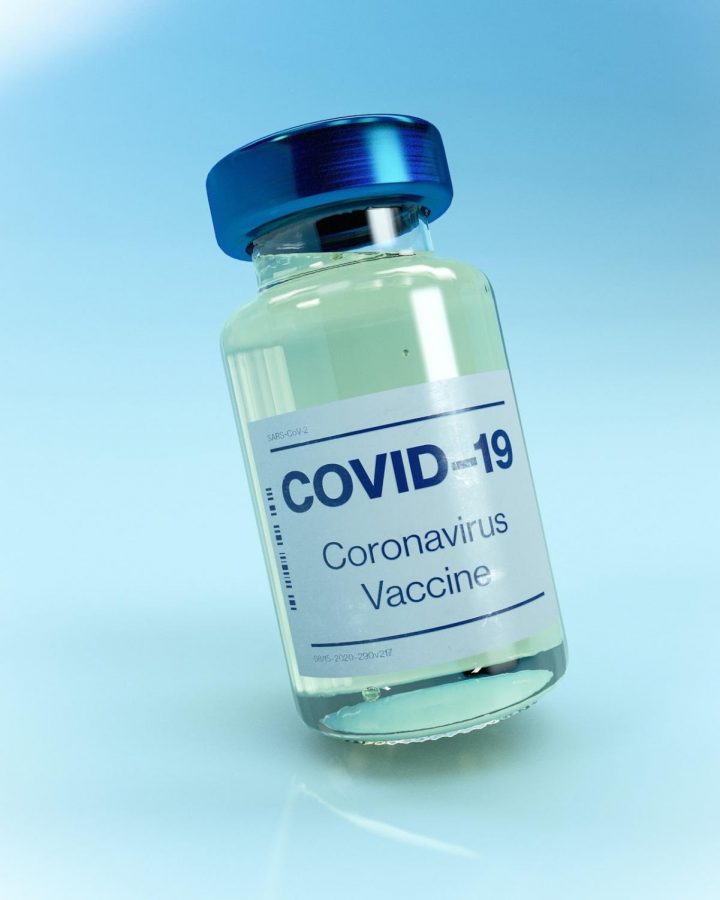Why Prisoners Should Be Given Priority For the COVID-19 Vaccine
As vaccine distribution increases, many people debate who should be placed where on the waiting list for vaccines.
“We shouldn’t discriminate when it’s a matter of life and death,” said Ursula Horn ’21, a student at Eleanor Roosevelt High School in New York City. The vaccine should be given to the most vulnerable, which includes prisoners.
As the United States vaccine rollout increases, it is crucial to not only focus solely on the number of vaccinations, but also on the logic behind who is vaccinated and in what order. Vaccine waiting lists are determined state by state. While the general consensus is that front line workers, the elderly, and those with pre-existing health conditions should take priority, there is one group of people who needs to be placed high on the list along with the others — the incarcerated.
Some of the largest COVID-19 outbreaks in the country have taken place in prisons. According to the NYTimes databases, inmates are four times more likely to be infected by COVID-19 than the general population, and they are twice as likely to die. There is a stereotype that prisoners are young, but more than one in 10 nationwide are over the age of 55 and therefore more at risk. “Simply because prisoners have been convicted of crimes does not mean they should be ignored by the government as they are some of the most vulnerable,” said Ursula Horn ’21, a student at Eleanor Roosevelt High School in New York City.
When the Coronavirus pandemic began in the spring of 2020, federal prisons were told to quickly grant home confinement to medically vulnerable inmates who posed no risk to the public. But the Federal government has not acted quickly, dashing hopes of protecting those at risk, reducing prison overcrowding, and potentially minimizing risk of outbreak. The New York Times reports that “just 7,850 of the 151,735 people serving federal sentences right now have been granted home confinement — about 5 percent.” According to the NYTimes databases, COVID-19 has infected more than 620,000 inmates and correctional officers in the nation’s prisons, jails and detention centers. Around 2,800 inmates and guards have died, making correctional facilities as dangerous as nursing homes.
As the Federal government slowly works to remove prisoners, it is all the more important that prisoners and guards receive vaccines immediately. In Massachusetts, inmates were vaccinated by the end of February 2021. They have been granted priority following health care workers, emergency medical workers and residents of long-term care facilities. Many states rank prisoners among those set to receive vaccines in the first round of vaccine distribution, but few have ranked inmates as highly as Massachusetts.
Federal health officials have recommended that correctional officers and staff at state facilities receive high priority as well as inmates. But some have rejected the notion that convicted felons receive the vaccine before others. We must remember that being convicted of a crime does not make one any less deserving of living. As prisoners face some of the greatest risk, they should be treated as some of the most vulnerable. Our goal is to fight this disease and the best way to do that is to protect the most at risk with the understanding that we are all part of the same ecosystem. As Bryan Stevenson, the founder of the Equal Justice Initiative, said, “The true measure of our character is how we treat the poor, the disfavored, the accused, the incarcerated, and the condemned.”
As Bryan Stevenson, the founder of the Equal Justice Initiative, said, “The true measure of our character is how we treat the poor, the disfavored, the accused, the incarcerated, and the condemned.”
Margaux Reyl is a Copy Chief for ‘The Science Survey.' As Copy Chief, Margaux is in charge of the second round of edits for many ‘Science Survey’...

